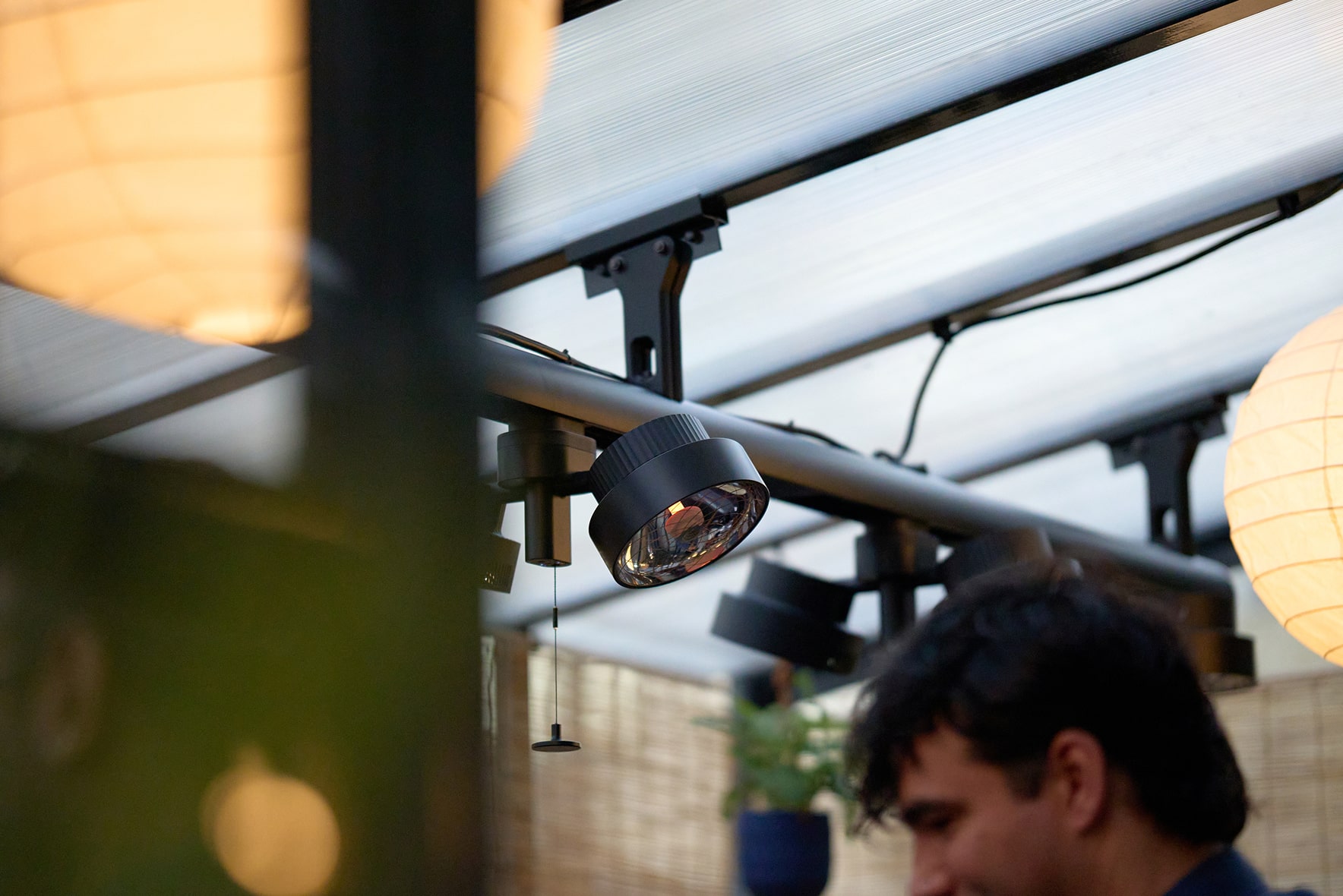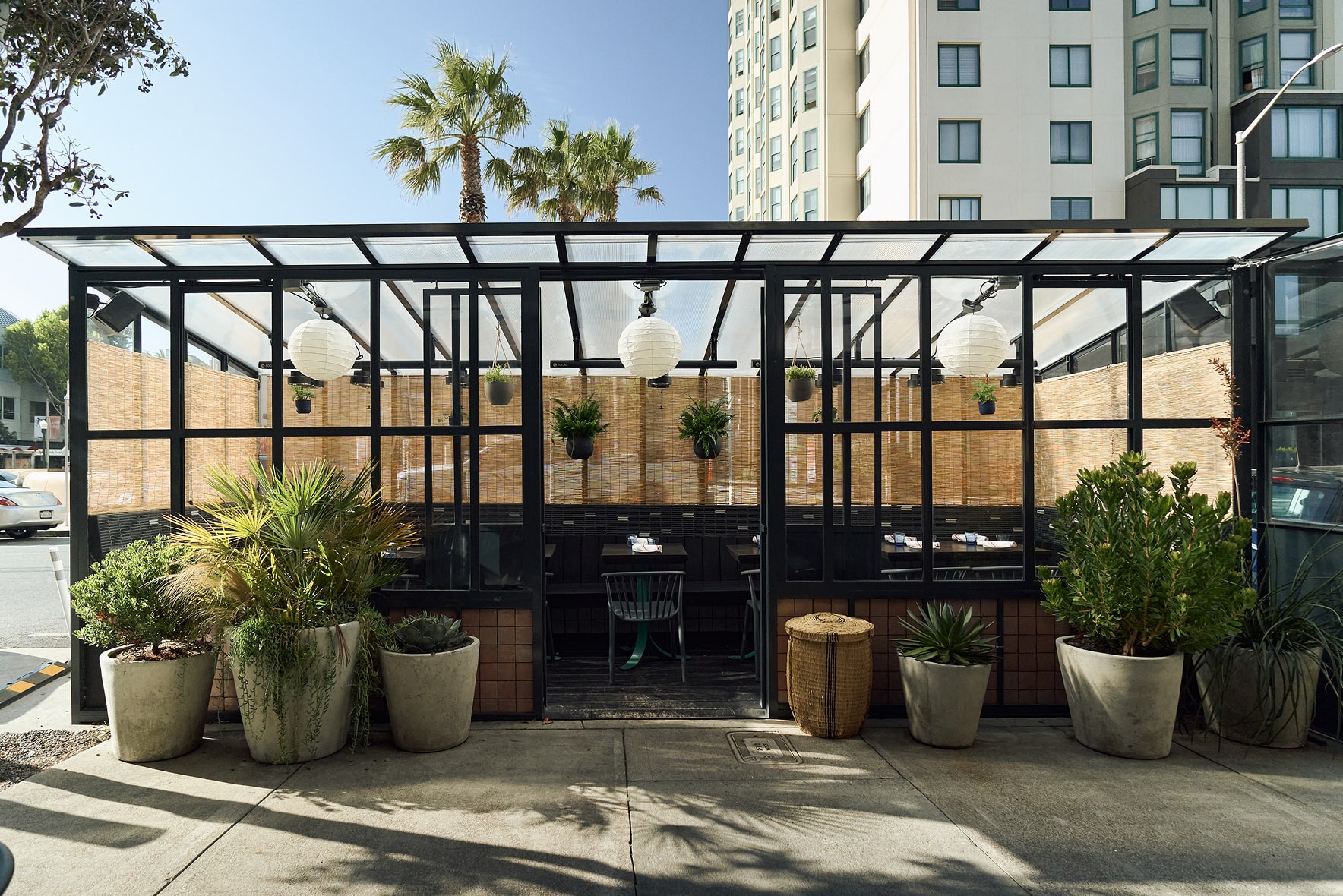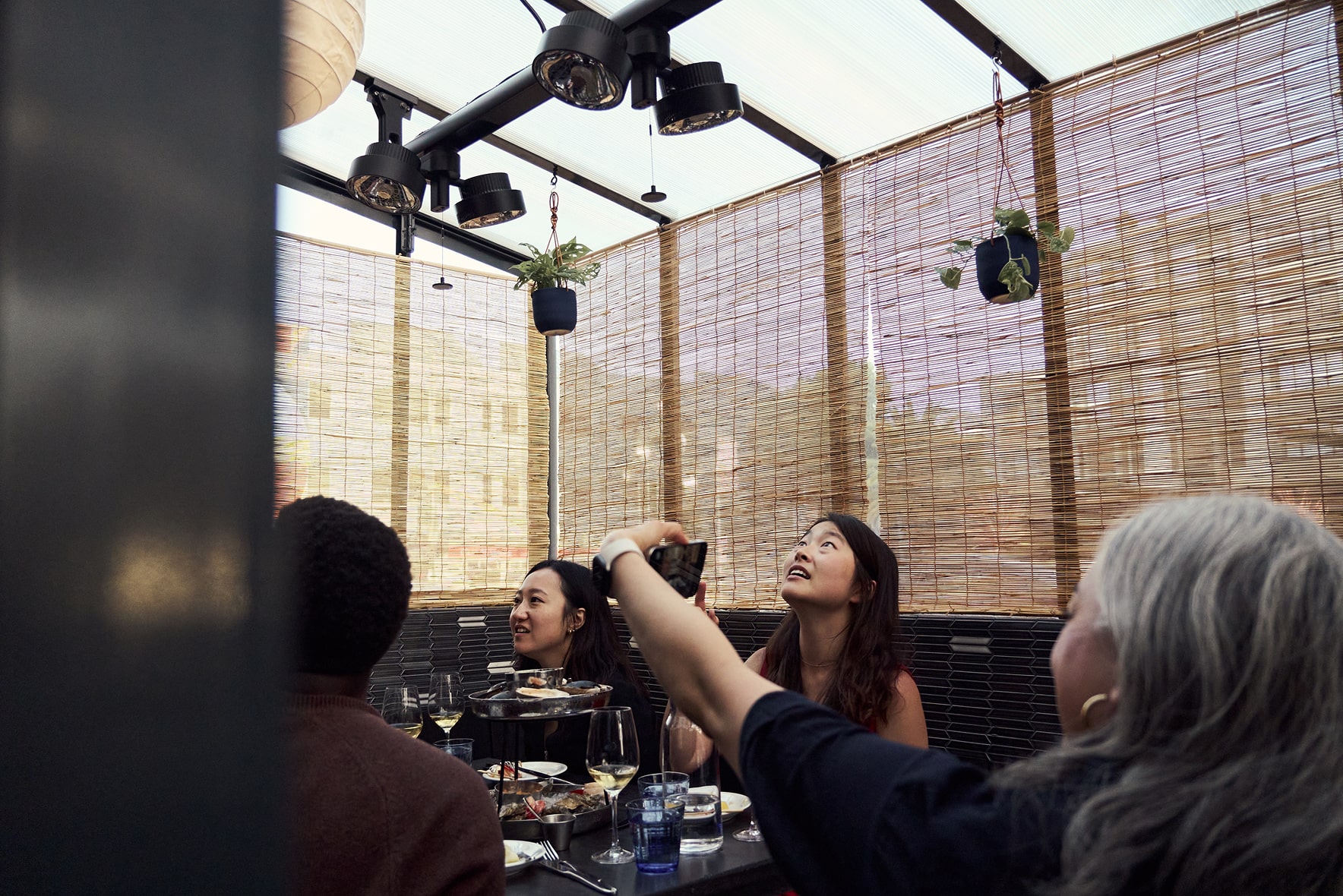
At The Anchovy Bar, every detail is part of the experience. Chef-owners Stuart Brioza and Nicole Krasinski, the team behind The Progress and the Michelin-starred, James Beard Award–winning State Bird Provisions, are known for creating restaurants that feel alive and intentional.
Managing partner Eli de Palmer describes The Anchovy Bar as “a world with sustainable seafood in a fun environment. It’s where seafood meets a wine bar. You can feel like you’re in a European café, a California coastal raw bar, or an East Coast seafood spot, all at once. The feeling is meant to be incredibly warm and easy.”
Since opening in 2020, the restaurant has earned recognition from The New York Times and Esquire Magazine as one of the year’s best new restaurants, often serving as a bright spot of creativity amid a challenging time for hospitality.
When it came time to reimagine The Anchovy Bar’s parklet, the team applied the same precision and creativity that define their food.
“The food always comes first,” says Brioza. “It sets the tone for everything else. The walls, the lighting, the materials, all of it has to support the food.”
That philosophy, rooted in sustainability and a deep respect for the ocean, extended outdoors, but San Francisco’s fog belt made comfort a challenge. “Outdoor dining can be imperfect,” says de Palmer. “If your napkin or food is blowing around, or you’re cold, that’s not the experience we want.”

Traditional propane heaters weren’t cutting it. “They were archaic,” she adds. “Bulky, expensive to run, and completely out of sync with our aesthetic.”
Facilities manager Cory Lubarsky agrees: “The thermocouples would go bad, the starters would fail, and hauling propane tanks in and out every day was brutal. It drained time and labor.”
The team needed a better solution, one that delivered comfort, efficiency, and design integrity. That’s what led them to Focal.
“When we learned about Focal, it was a game changer,” says de Palmer. “We could free up space, save labor, lower energy costs, and get rid of propane entirely.”
Rohan Pandya, Co-founder and Co-CEO of Focal, recalls his first interaction with Cory Lubarsky, “From my first interactions with Cory, I could tell right away that The Anchovy Bar team equally cared about both design and functionality. We could not have found a more values-aligned early partner and customer.”
Brioza appreciated the design flexibility. “Focal offers focused energy use and real customization for the guest,” he says. “The heaters mount overhead, distribute warmth evenly, and don’t add visual clutter.”
Guests can even adjust comfort levels via a simple QR system. “I’m not always a fan of tech at the table,” Brioza admits, “but this makes sense. It’s unobtrusive and intuitive. You don’t have to sign in or download anything, it just works.”
For Lubarsky, the shift changed daily operations. “We’re a small restaurant, and every inch matters. Without the big propane towers, we can combine tables or reconfigure the layout easily. That’s more freedom for guests and more seats for us, which directly translates to revenue.”
“When we learned about Focal, it was a game changer. We could free up space, save labor, lower energy costs, and get rid of propane entirely.”
Eli de Palmer
managing partner, the anchovy bar
The redesigned parklet reflects the restaurant’s broader design philosophy: natural, layered, and connected to its surroundings. “We think of it as a living space,” says Brioza. “It’s filled with plants, sunlight, and natural materials. The heaters blend in beautifully. The track runs above, the greenery softens the lines, and the space feels organic and inviting.”
The result is a space that feels as intentional as the dining room. Comfortable, flexible, and distinctly The Anchovy Bar.

“In the end, what do you want from a heater?” asks Brioza. “You want it to work. You want it to be comfortable. And you don’t want it to ruin the mood.”
Focal delivered on all three. “The power output is incredible,” he says. “For the energy it uses, it puts out a tremendous amount. And it looks great doing it.”
From a business perspective, de Palmer sees clear value: “Once you factor in propane costs, labor, and maintenance, Focal is a no-brainer. It may cost more upfront, but it pays for itself. It’s an investment in sustainability for our guests, our team, and the planet.”
For Lubarsky, the biggest impact shows up in the daily rhythm of service. “Before Focal, heaters took time and energy to set up every day. Now, the system just works. It gives the team peace of mind and lets us focus on what we do best: hospitality.”
Guests notice, too. “We read our reviews closely,” says de Palmer. “Seeing people mention the comfort of our outdoor space and even call out the heaters means a lot. It shows they feel the difference.”
“Before Focal, heaters took time and energy to set up every day. Now, the system just works. It gives the team peace of mind and lets us focus on what we do best—hospitality.”
Cory Lubarsky
facilities manager, the anchovy bar
For the team behind The Anchovy Bar, outdoor dining isn’t a trend, it’s a responsibility.
“If we’re going to offer it, we owe it to our guests to make it comfortable,” says Brioza.
de Palmer adds, “We’re a small business, but choices like energy efficiency, design integrity and guest comfort reflect who we are. We want to model what responsible outdoor dining can look like.”
And the transformation speaks for itself. “Before Focal, it was cold and windy,” she laughs. “Now it’s still windy, but it’s really cozy.”

With Focal, The Anchovy Bar created a model for what outdoor dining can be in San Francisco: a space that balances sustainability, comfort, and design.
“It’s a game changer,” says de Palmer. “It saves space, saves energy, and lets us focus on creating experiences that feel warm in every sense of the word.”